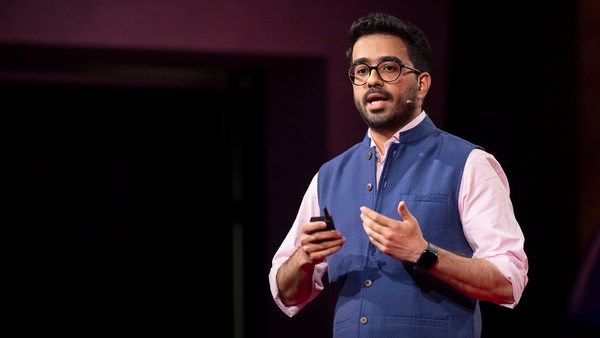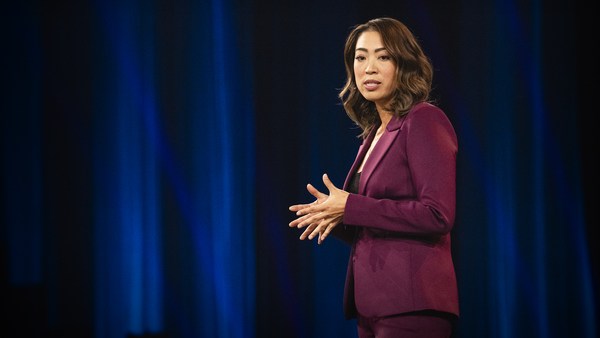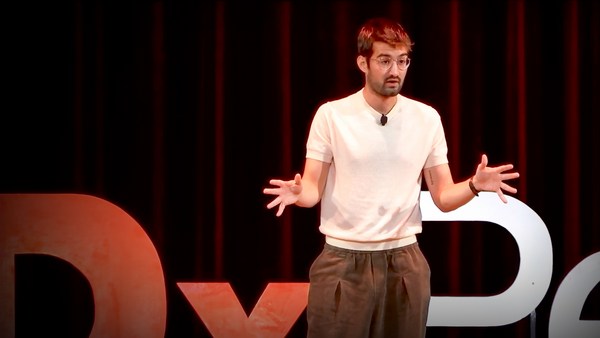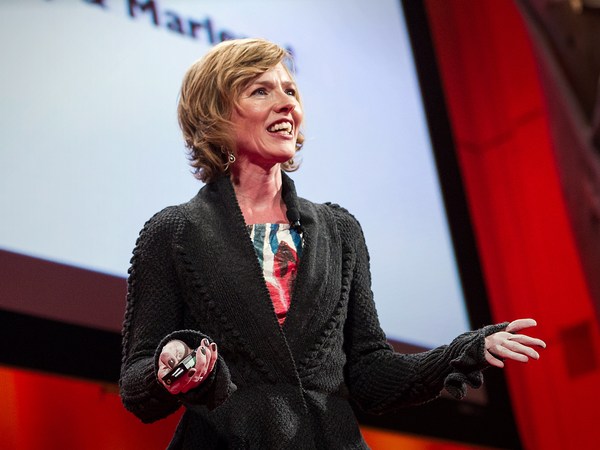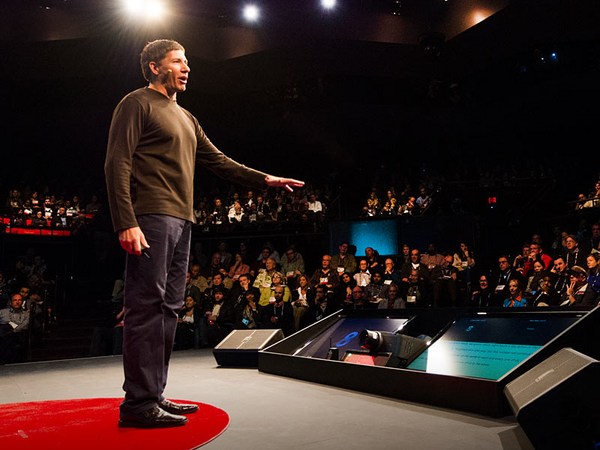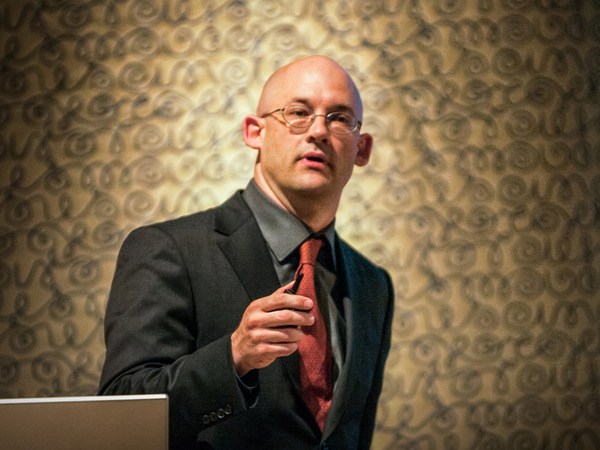I was born and raised in Tucson, Arizona, by a single mom, and when I was 15 years old, I moved out because of her struggles with substance abuse. The next year, 2017, while living with my boyfriend and his family, my senator voted to strip the funding that I needed when I walked into a clinic with no money, no insurance and no parents to walk out with the birth control I needed to take control of my body, my future. It was personal, and I told him so at a town-hall meeting in Mesa. I asked, if birth control was helping me to be successful, reach for higher education, why would he deny me the American Dream? Millions of people saw that video. Overnight, I had gone viral. My life went from private to public. Requests from CNN rolled in, to go live. "The Washington Post" called me the new face of Planned Parenthood. Social media put me, a 16-year-old-girl working at a gas station, on even footing in the public discourse with a United States senator.
My world has opened up in unimaginable ways because of social media, both good and bad. And in the nearly decade since, it's made possible things I couldn't have even imagined. But I've seen the dark side of insidious algorithms and the ways that companies profit from them. Like the day in 2021, when a stranger labeled me the enemy. Four days later, hundreds of thousands of impressions, 60,000 likes, 4,000 retweets, 600 replies later, and this cyber mob had filled my DMs and comments across all social media platforms. And now I need you to be in my shoes for a second. 20 years old, isolated by an ongoing pandemic. And to reach for your phone first thing in the morning, because it's also your alarm, to wake up to threats to your personal safety and information. Have a notification center full of comments about how you look, and speculation on an identity that you yourself are only just coming to build.
Social media platforms didn't have a solution for the hate that they facilitated, but young people in my community did. Maya and I met on Instagram through GenZ Girl Gang. That's the digital collective I founded out of my dorm, in 2019. And ever since, we've been committed to redefining the practice of sisterhood in digital spaces. In 2021 ... we had never met in real life, but when I needed her, she was there. She sent me a text, a lifeline, if I can be honest with you. "Send me your passwords." She went in and deleted hateful comments and DMs before I could ever even see them ... knowing that, otherwise, I would be forced to open, experience and clear each and every one alone. We deserve respect for our rights, privacy and safety by design, not as an afterthought.
(Cheers and applause)
And clear protections against hate and harassment that are informed by our experiences standing up for ourselves and our friends. I've seen countless gestures like this one in my time running this digital collective. In our pandemic support chats, Girls who had never met volunteered their stimulus checks to help a long-distance bestie in need. They've shared thousands of internships, job opportunities, fellowships that have become career-making moments, first jobs, for women they may never meet. Big tech wasn't coming to save us, but girls like my friends just might. In my experience, it is teenage girls that are the digital strategists of our time. In an internet not built for us, we have built narrative and political power, one viral video at a time.
(Audience) Yes.
(Cheers and applause)
We've developed survival strategies, like Maya, to protect ourselves and our friends. And we're not stopping there. We're building a new, better way of being online, no matter your generation or your gender. So let me be the first to welcome you to the girl internet.
(Cheers and applause)
Archive of Our Own was founded in 2008. If you ask almost any girl my age about it, she'll respond with a story of her introduction to the internet via its sometimes salacious fan works. But even more subversive is its structure. A noncommercial, nonprofit archive run by an elected board, completely volunteer-powered, supporting a user base of over eight million. And its legacy brings us new, younger builders, like Zehra Naqvi, whose experience running One Direction stan accounts as a teenager has transformed into an AI-powered, VC-backed search engine for the fangirls called Lore. And then, there's Sunroom, where the girls get paid to exist. Think OnlyFans -- personalized, monetized content, but for everyone from fitness instructors to career coaches and yes, obviously, hot girls.
(Laughter)
But with content moderation done through a woman's lens, and zero tolerance for harassment and hate speech. And if you still have questions about the digital world that we're building, there’s Diem, founded by an all-woman team. It's built to feel like you're asking questions in the girls' restroom, at 1 a.m. Founded in 2023, it has a user base of over 100,000, and saw an increase by 700 percent in searches in the days following the US presidential inauguration in 2025. And that's no surprise, because a quarter of their searches are about reproductive health. And they're serious about our privacy, guaranteeing anonymous searching in a moment where major platforms are censoring women's health information. And respect for consumers and creators is actually built into their business model. They reward conversations that train their algorithm with gems. They work a lot like credit card points. You can use them at your favorite brands, or as donations to the causes you care about. I even saw a dad of two little girls coming to Diem to ask for advice. He came away with everything from book recommendations to affirmations from fellow users.
So while these apps are built by and for the girls, their benefits go far beyond. They model an internet with respect, control, ownership ... and they have more in common than just being built by women. They model a new, better architecture for a digital world that we are building. And this matters, because in a world where 39 percent of adults under 30 get their news on TikTok, this isn't some frivolous teenage pastime. This is the new public square. And we should not be forced to participate in hate for profit business models just to participate in that public discourse. This year alone, we've seen migrations, from TikTok to RedNote, Twitter to Bluesky. As entrenched as the current platforms may seem ... they're not permanent. These social media platforms that influence the policies of countries, entire economies, are, by and large, younger than me, and I was born in 2000.
(Laughter)
Not to mention that many of the men who founded them were younger than me too. And in the case of Facebook, at least at its origin, was more interested in rating their female classmates than democratizing who gets to participate in our political and public discourse. I stand in front of you today because of the internet. The college essay that I wrote on my phone earned me a place at my dream university, on a full ride, the first of my family to go to college. A DM, a direct message on Instagram, led to a job on a history-making presidential campaign, and the following that I have built online has turned into the support I needed to launch my very first run for office.
(Cheers and applause)
I believe in the promise of the internet, and I'm asking you to join my generation to fight for it. Let's build our digital future together.
Thank you.
(Cheers and applause)
